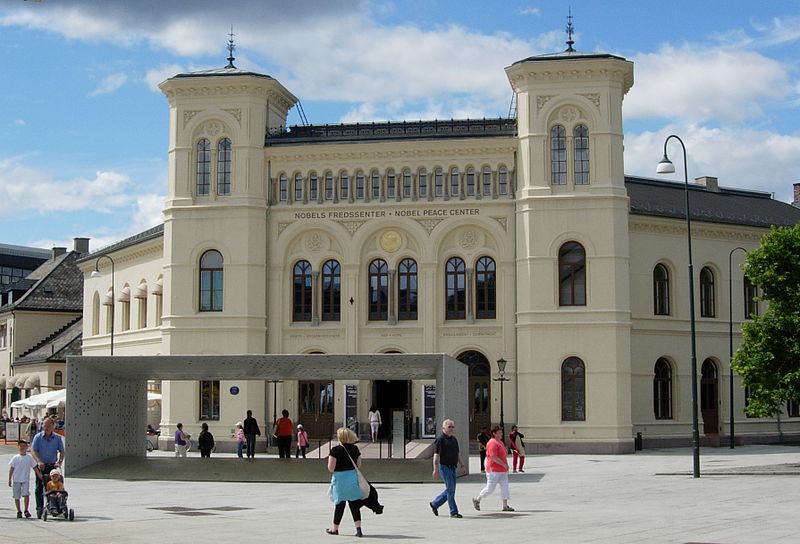Adopting from Norway
Contents
Hague Convention Information
Norway is party to the Hague Convention on Protection of Children and Co-operation in Respect of Intercountry Adoption ( Hague Adoption Convention ). Therefore all adoptions between Norway and the United States must meet the requirements of the Convention and U.S. law implementing the Convention.
Note: There are few children eligible for intercountry adoption from Norway, with a long waiting list of Norwegian prospective adoptive parents. While legally possible, intercountry adoption of a Norwegian orphan by foreigners is unlikely. No Norwegian orphans have received U.S. immigrant visas in the past five fiscal years. The information provided is intended primarily to assist in rare adoption cases from Norway, including adoptions of Norwegian children by relatives in the United States, as well as adoptions from third countries by Americans living in Norway.
Who Can Adopt
Adoption between the United States and Norway is governed by the Hague Adoption Convention. Therefore to adopt from Norway, you must first be found eligible to adopt by the U.S. Government. The U.S. Government agency responsible for making this determination is the Department of Homeland Security, U.S. Citizenship and Immigration Services (USCIS). Learn more.
In addition to these U.S. requirements for prospective adoptive parents, Norway also has the following requirements for prospective adoptive parents:
Residency
Temporary visitors to Norway cannot apply to adopt in Norway.
Age of Adopting Parents
Applications by parents who are 45 years or older are given additional scrutiny. There are cases, for example, in which one of the spouses is considerably younger than the other, or the family already has adopted a child.
Marriage
Those who apply together must be married, generally for at least two years. People who are not married to each other are not eligible to adopt a child together in Norway, although single adoptive parents may qualify if they fulfill certain requirements.
Income
You must be able to show documents certifying a stable financial situation.
Other
You must be able to show documents certifying good health status, and a clean police record.
Who Can Be Adopted
Because Norway is party to the Hague Adoption Convention, children from Norway must meet the requirements of the Convention in order to be eligible for adoption. For example, the Convention requires that Norway attempt to place a child with a family in-country before determining that a child is eligible for intercountry adoption. In addition to Norway's requirements, a child must meet the definition of a Convention adoptee for you to bring him or her back to the United States.
How to Adopt
Adoption Authority
Adoption Authority in Norway:
The Norwegian Directorate for Children, Youth and Family Affairs Ministry of Children and Equality
The Process
Because Norway is party to the Hague Adoption Convention, adopting from Norway must follow a specific process designed to meet the Convention's requirements. A brief summary of the Convention adoption process is given below. You must complete these steps in the following order so that your adoption meets all necessary legal requirements.
NOTE: The information provided is intended primarily to assist in rare adoption cases from Norway, including adoptions of Norwegian children by relatives in the United States, as well as adoptions from third countries by Americans living in Norway.
- Choose an Accredited Adoption Service Provider
- Apply to be Found Eligible to Adopt
- Be Matched with a Child
- Apply for the Child to be Found Eligible for Immigration to the United States
- Adopt the Child in Norway
- Bring your Child Home
1. Choose an Accredited Adoption Service Provider:'
The first step in adopting a child from Norway is to select an adoption service provider in the United States that has been accredited. Only these agencies and attorneys can provide adoption services between the United States and Norway. Learn more.
Adoptions in Norway are arranged through one of three accredited adoption organizations, supervised by the Norwegian Central Authority (Bufdir ).
Links to the three Norwegian adoption organizations:
2. Apply to be Found Eligible to Adopt:
After you choose an accredited adoption service provider, you apply to be found eligible to adopt (Form I-800A) by the U.S. Government, Department of Homeland Security, U.S. Citizenship and Immigration Services (USCIS). Learn how.
Once the U.S. government determines that you are "eligible" and "suitable" to adopt, you or your agency will forward your information to the adoption authority in Norway. Norway's adoption authority will review your application to determine whether you are also eligible to adopt under Norway's law.
3. Be Matched with a Child:
If both the United States and Norway determine that you are eligible to adopt, and a child is available for intercountry adoption, the central adoption authority in Norway may provide you with a referral for a child. Each family must decide for itself whether or not it will be able to meet the needs of the particular child and provide a permanent family placement for the referred child.
4. Apply for the Child to be Found Eligible for Adoption:
After you accept a match with a child, you will apply to the U.S Government, Department of Homeland Security, U.S. Citizenship and Immigration Services (USCIS) for provisional approval to adopt that particular child (Form I-800). USCIS will determine whether the child is eligible under U.S. law to be adopted and enter the United States. Learn how.
After this, your adoption service provider or you will submit a visa application for to a Consular Officer at the U.S. Embassy. The Consular Officer will review the child's information and evaluate the child for possible visa ineligibilities. If the Consular Office determines that the child appears eligible to immigrate to the United States, he/she will notify Norway's adoption authority (Article 5 letter). For Convention country adoptions, prospective adoptive parent(s) may not proceed with the adoption or obtain custody for the purpose of adoption until this takes place.
Remember: The Consular Officer will make a final decision about the immigrant visa later in the adoption process.
5. Adopt the Child (or Gain Legal Custody) in-country:
Remember: Before you adopt (or gain legal custody of) a child in Norway, you must have completed the above four steps. Only after completing these steps, can you proceed to finalize the adoption or grant of custody for the purposes of adoption in Norway.
- ROLE OF THE ADOPTION AUTHORITY: The Norwegian Directorate for Children, Youth and Family Affairs (known by the Norwegian acronym "Bufdir"), a unit of the Ministry of Children and Family Affairs, is the authority on both domestic and intercountry adoptions in Norway. Bufdir supervises the work of the three Norwegian adoption organizations, maintains central adoption records and assigns a government grant to those who receive approval to adopt a child. Bufdir is also the Central Authority for the Hague Intercountry Adoption Convention, which came into force for Norway January 1, 1998. The Ministry of Children and Family Affairs also has appointed a Professional Board for Adoptions, an independent body with advisory status, composed by a medical doctor and two psychologists/psychiatrists. In domestic adoptions the Board is responsible for the placement process whenever there is a child in Norway in need for a new family through adoption. In intercountry adoptions the Board is responsible for the placement whenever the foreign child proposed for placement with the prospective adoptive parents, has special needs or is above a certain age. The five regional offices for Children, Youth and Family Affairs give advance approval to applicants who want to adopt a child from abroad, processes applications for the adoption of Norwegian children (primarily stepchildren)
- LEGAL FRAMEWORK: The Act on Adoption, which came into force on January 1, 1987, and government guidelines constitute the regulations for adoptions in Norway.
- ROLE OF ADOPTION AGENCIES: In nearly all cases, the adoption is arranged through one of three accredited adoption organizations (specified on Bufdir web site).
- TIME FRAME: In general, it takes close to a year to prepare the required reports about the applying family]
- ADOPTION FEES: In the adoption services contract that you sign at the beginning of the adoption process, your agency will itemize the fees and estimated expenses related to your adoption process.
- DOCUMENTS REQUIRED: Documents required include:
- 1. a social report detailing the prospective adoptive parents' background, marriage, everyday life, interests and motives for wanting to adopt a child from abroad;
- 2. the social worker's written impression of the applicants and their suitability to be adoptive parents;
- 3. birth and marriage certificates;
- 4. doctor's reports;
- 5. police certificates, and;
- 6. documentation of financial standing. NOTE: Additional documents may be requested. If you are asked to provide proof that a document from the United States is authentic, we can help. Learn how.
6. Bring Your Child Home
Now that your adoption is complete (or you have obtained legal custody of the child), there are a few more steps to take before you can head home. Specifically, you need to apply for three documents for your child before he or she can travel to the United States:
- 1. Birth Certificate
You will first need to apply for a new birth certificate for your child, so that you can later apply for a passport. Your name will be added to the new birth certificate.
All births in Norway are required to be officially registered. The hospital sends notification to the Folk Register, where basic information is registered and a personal number is issued. The parents are obligated to report the baby's name within 6 months. This is registered by the tax office, where a birth certificate is then issued and sent to the parents, confirming the name and the personal number. A copy of the original birth certificate or a new birth certificate with the adoptive parents' name can be requested from the local office of the Folk Register where the child was born.
- 2. Norwegian Passport
Your child is not yet a U.S. citizen, so he/she will need a travel document or Passport from Norway.
To apply for a Norwegian passport, contact the local police in the district where you are registered in the Folk Register.
Application forms and instructions are available from the police or can be found at this police webpage (Norwegian language).
Proof of Norwegian citizenship and identity must be presented. The child must be present when applying. At least one parent must appear, with ID. If both parents share custody, the other parent must give written consent with a copy of ID. Also required is a photo meeting the requirements and the fee of NOK 450 for applicants over 16, NOK 270 for children under 16. Normal processing time is within 10 working days.
- 3. U.S. Immigrant Visa
After you obtain the new birth certificate and passport for your child, you also need to apply for an U.S. visa from the United States Embassy for your child. After the adoption (or custody for purpose of adoption) is granted, visit the U.S. Embassy for final review and approval of the child's I-800 petition and to obtain a visa for the child. This immigrant visa allows your child to travel home with you. As part of this process, the Consular Officer must be provided the "Panel Physician's" medical report on the child if it was not provided during the provisional approval stage. Learn more.
Child Citizenship Act
For adoptions finalized abroad: The Child Citizenship Act of 2000 allows your child to acquire American citizenship when he or she enters the United States as lawful permanent residents.
For adoptions to be finalized in the United States: The Child Citizenship Act of 2000 allows your child to typically acquire American citizenship when the U.S. state court issues the final adoption decree. We urge your family to finalize the adoption in a U.S. State court as quickly as possible.
Please be aware that if your child did not qualify to become a citizen upon entry to the United States, it is very important that you take the steps necessary so that your child does qualify as soon as possible. Failure to obtain citizenship for your child can impact many areas of his/her life including family travel, eligibility for education and education grants, and voting.
Learn more about the Child Citizenship Act.
Traveling Abroad
Applying for Your U.S. Passport
A valid U.S. passport is required to enter and leave Norway. Only the U.S. Department of State has the authority to grant, issue, or verify U.S. passports. Getting or renewing a passport is easy. The Passport Application Wizard will help you determine which passport form you need, help you to complete the form online, estimate your payment, and generate the form for you to print-all in one place.
Obtaining Your Visa
In addition to a U.S. passport, you also need to obtain a visa. A visa is an official document issued by a foreign country that formally allows you to visit. Where required, visas are attached to your passport and allow you to enter a foreign nation. To find information about obtaining a visa for Norway, see the Department of State's Country Specific Information.
Staying Safe on Your Trip
Before you travel, it's always a good practice to investigate the local conditions, laws, political landscape, and culture of the country. The State Department is a good place to start. The Department of State provides Country Specific Information for every country of the world about various issues, including the health conditions, crime, unusual currency or entry requirements, and any areas of instability.
Staying in Touch on Your Trip
When traveling during the adoption process, we encourage you to register your trip with the Department of State. Travel registration makes it possible to contact you if necessary. Whether there's a family emergency in the United States, or a crisis in Norway, registration assists the U.S. Embassy or Consulate in reaching you. Registration is free and can be done online.
After Adoption
What resources are available to assist families after the adoption?
Many adoptive parents find it important to find support after the adoption. Take advantage of all the resources available to your family -- whether it's another adoptive family, a support group, an advocacy organization, or your religious or community services.
Here are some good places to start your support group search:
Child Welfare Information Gateway
North American Council on Adoptable Children
Adoption Services Support Group for Adopting Persons
Contact Information
U.S. Embassy in Norway
Henrik Ibsens Gate 48 0244 Oslo Tel: 47/2244-8550 Fax: 47/2256-2751 osloamcit@state.gov Internet: U.S. Embassy Norway
Norway's Adoption Authority
The Norwegian Directorate for Children, Youth and Family Affairs Ministry of Children and Equality Barne- ungdoms- og familiedirektoratet Postboks 8113 Dep Universitetsgata 7, 0032 Oslo Tel: 47/2404-4000 Fax: 47/2404-4001 Email: post@bufdir.no Internet: Norway Adoption Authority
Royal Norwegian Embassy
2720 34th St., NW Washington, D.C. 20008 Tel: 202/333-6000 Fax: 202/337-0870 Email: emb.washington@mfa.no Internet: Royal Norwegian Embassy
Norway has Consulates General in New York, Houston, San Francisco and Minneapolis. See www.norway.org
Office of Children's Issues
U.S. Department of State CA/OCS/CI SA-17, 9th Floor Washington, DC 20522-1709 Tel: 1-888-407-4747 E-mail: AskCI@state.gov Internet: U.S. Department of State
U.S. Citizenship and Immigration Services (USCIS)
For questions about immigration procedures, call the National Customer Service Center (NCSC) 1-800-375-5283 (TTY 1-800-767-1833)
SOURCE
Intercountry Adoption, Bureau of Consular Affairs. U.S. Department of State Country Information[1]









